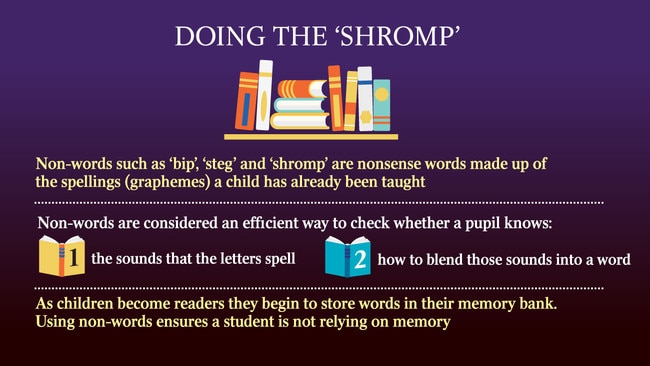Research proves non-word phonic tests ‘no inhibitor to readers’
A key argument against introducing compulsory phonics screening in early primary school has been discredited.
A key argument against introducing compulsory phonics screening in early primary school has been discredited by research that has endorsed the role of made-up words as a valid measure of a child’s literacy skills.
When the federal government flagged introducing Year 1 phonics screening, critics, led by the national teachers’ union, mocked its reliance on “nonsense words” such as “plood”, “lig” and “moul”, saying more proficient readers with good word knowledge would be disadvantaged.
New research from Macquarie University, published in the Australian Journal of Learning Difficulties, has found the inclusion of non-words in such tests are a key to the process of assessing students’ decoding skills compared with their prior word knowledge.
Researchers, led by reading and language scientist Anne Castles, examined results of tests conducted with students reading non-words aloud and found “stronger word readers were less likely to make a word error response than weaker word readers”.
“We conclude that non-word reading measures are a valid index of phonics knowledge, and these tests do not disadvantage children who are already reading words well,” the paper says.
Professor Castles said the project was prompted by the strong opposition to the federal government’s push for phonics screening for all Year 1 students, a concept based on the British screening program that has been running since 2012.



